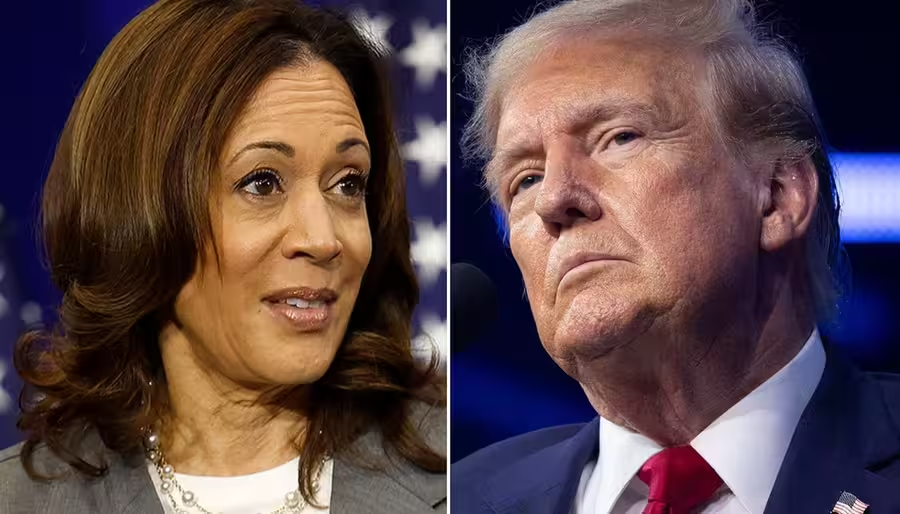
These are the top five long-term foreign policy goals for Americans in 2024, according to Pew Research Center:
- “Taking measures to protect the U.S. from terrorist attacks,” reflecting the American public’s attitude towards extremism since the 11 September attacks in 2001.
- “Reducing the flow of illegal drugs into our country,” which, according to the US Department of State, “deeply affects” the nation.
- “Preventing the spread of weapons of mass destruction,” also echoing concerns which arose after the 11 September attacks.
- “Maintaining the U.S. military advantage over all other countries,” reflecting US military dominance since the Second World War.
- “Reducing the spread of infectious diseases,” echoing relatively new concerns resulting from the COVID-19 pandemic.
Sitting Vice President Kamala Harris has already acquired enough endorsements to become the Democratic Party’s nominee for the 2024 United States Presidential Election, making her likely to receive the nomination after sitting President Biden announced he would not seek reelection.
While her charter as Vice President doesn’t require many diplomatic duties, she has been involved in Central Asia and Middle East efforts. She will also likely hire some of the same advisors in Biden’s administration, making it likely that US foreign policy will remain constant from the Biden administration if she is elected.
Contrastingly, former President Donald Trump has already promised to hastily end the war in Ukraine, pushing Kyiv to cede Ukrainian territory to the Kremlin.
Additionally, he is a sharp critic of security alliances with Europe, such as NATO, and believes that Taiwan should provide financial reparations to the US government in exchange for security from China.
Moreover, his running mate, Ohio senator JD Vance has been a vocal critic of “protecting democracy” throughout the globe, instead insisting that the US government should focus its attention on domestic issues, staying relatively uninvolved on a global scale.
However, historical precedent has to disagree with Senator Vance. The United States has historically been involved globally ever since its inception. From the Barbary Wars to multiple World Wars to Korea and Vietnam, the United States has historically been very involved around the globe.
But, if Trump-Vance wins the 2024 election, this has been predicted to change drastically, as the US will shift towards a more isolationist policy.
Furthermore, due to former President Trump’s recent felony convictions, he may face travel bans around the world, limiting the power of US diplomacy in case of his reelection. The United Kingdom, Australia, and Canada, all key US allies, all have strict travel restrictions for convicts. And China, the US’s late nemesis, doesn’t even permit entry to them.
On the issue of the Palestinian genocide, Vice President Harris has pledged support for both a two-state solution and Israel’s right to defend itself from extremism since her election as a US Senator from California in 2017.
However, she has pushed for more condemnations of Palestinian deaths and the Gaza humanitarian crisis.
Harris has stated that the people “in Gaza are starving” and “the conditions are inhumane and our common humanity compels us to act.” She adds that the “Israeli government must do more to significantly increase the flow of aid.”
“No excuses,” she stated.
Meanwhile, Trump and other Republicans have staunchly censured and been hostile towards advocates of Palestine within the US.
He has commented that the protests advocating for Palestinian aid are a “radical revolution” that has infected US college campuses, going as far as to say that he would deport non-US citizen protestors.
He has also remarked that he would set “the movement back 25 or 30 years” when referring to Palestinian advocacy, supporting Israel’s “war on terror” after the October 7 attack by Hamas.
It’s uncertain whether or not foreign policy objectives the American people want will be completed by either administration, but the US’s attitude towards other nations and wars may change drastically within the next four years.
It is essential for Americans to be especially perceptive about foreign policy and the happenings of the world, so they may elect a candidate that will truly reflect American values and apply the US on the global stage.
Written by Eshan Korat


